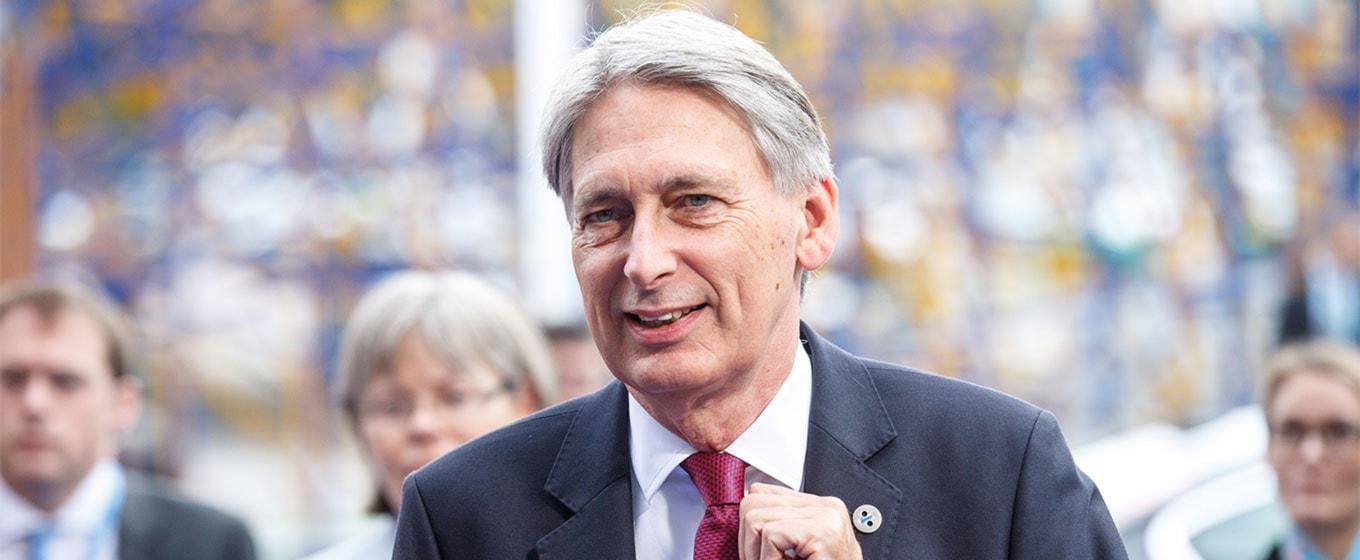Ahead of the Autumn Budget, Fleximize conducted a survey of business owners, asking them what they’d like to hear from Philip Hammond when he delivers his spending plan for the coming year. Chief among their concerns was a looming rise in business rates which, if implemented, would put the future of their businesses in serious doubt. Several business organizations also raised the issue with the chancellor ahead of his budget speech – and it’s safe to say he listened.
Despite some gloomy growth forecasts and questionable attempts at humour, Hammond delivered some positive news to small businesses by announcing that, from April 2018, business rate rises would be pegged to the CPI (Consumer Price Index) measure of inflation instead of the RPI (Retail Price Index), saving companies a total of £2.3 billion. "We can't build an economy fit for the future without helping the backbone, our small businesses,” said the chancellor.
The good news didn’t end there, however. Hammond went on to confirm that any businesses affected by the so-called ‘staircase tax’ would have their original bill reinstated, adding that the business rates discount for pubs with a rateable value of £100,000 would be extended by another year. He also announced that, following the next rates revaluation, future revaluations will take place every three years rather than five, which will reduce the size of increases going forward.
While the headline announcement of Hammond’s Budget was the scrapping of stamp duty for first-time buyers, there was plenty else that will be of interest to business owners. Here’s a summary:
- The turnover threshold at which small businesses pay VAT has been maintained at £85,000, but a consultation is to be launched on the issue following advice from the Office of Tax Simplification.
- In a bid to maintain the UK’s position as a world-leader in technology, £500 million has been set aside for investment in 5G mobile networks, full fibre broadband and artificial intelligence. “A new tech business is founded in the UK every hour, and I want that to be every half hour," said Hammond.
- A further £2.3 billion will be allocated for investment in research and development, and £540 million will be used to support the growth of electric cars. This will include the provision of more charging points across the country.
- The British Business Bank will receive £2.5 billion as part of an action plan "to unlock over £20bn of new investment in knowledge-intensive scale-up businesses". The amount that these companies can raise through the Enterprise Investment Scheme (EIS) and Venture Capital Trusts will be doubled, likewise the amount that individuals can invest through EIS.
- The number of computer science teachers will be trebled to 12,000, at a cost of £84 million, and a National Centre for Computing will be established.
- In more good news for pub owners (and pub-goers), duty on wine, spirits, beer and most ciders will be frozen, while duty on high-strength ‘white ciders’ is to be increased.
- Fuel duty will remain frozen for the seventh successive year, bringing further savings to businesses that rely heavily on vans, trucks and other forms of road transport.
- From April 2019, digital businesses will be taxed on any royalties that have been paid to overseas jurisdictions where they’re not taxed. Designed to tackle tax avoidance and evasion, the chancellor said this measure will raise £4.8 billion by 2022-23.
“I applaud the chancellor for listening to the CBI, British Chambers of Commerce and other organisations, whose recommendations on business rates were made with the interests of small businesses in mind,” said Peter Tuvey, co-founder and managing partner of Fleximize, the alternative business lender.
“In our recent survey of business owners, 34% said business rate rises are one of the biggest issues affecting their business, with 40% saying a cap on rates would make the most difference to their company. These measures, along with the maintenance of the VAT threshold, should allow thousands of small businesses to thrive, which can only be good news for the UK economy.”
Full information on the Autumn Budget is available on the government’s website, including a full transcript of Philip Hammond’s speech.
Photo credit: Raul Mee (via Flickr)




These cookies are set by a range of social media services that we have added to the site to enable you to share our content with your friends and networks. They are capable of tracking your browser across other sites and building up a profile of your interests. This may impact the content and messages you see on other websites you visit.
If you do not allow these cookies you may not be able to use or see these sharing tools.